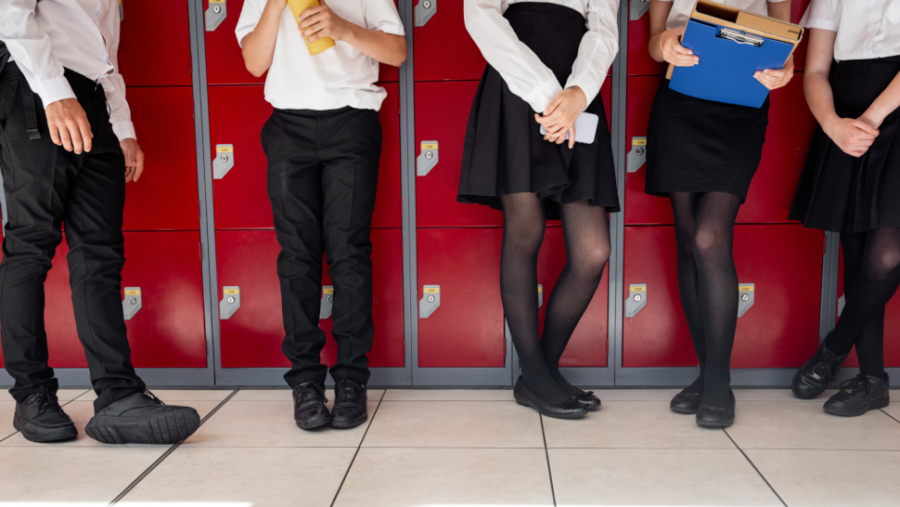
Department for Education guidance for schools on children questioning their gender
18th January 2024

The Department for Education (DfE) has published the long awaited draft non-statutory guidance for schools (including independent schools) on children questioning their gender.
The draft guidance acknowledges the significant increase in recent years of parents and/or pupils making requests to schools to accommodate children questioning their gender. Such requests include a request to change the pupil’s name, adapt the uniform and for pupils to use different facilities than those designated to their biological sex. This process is referred to in the draft guidance as social transitioning.
The DfE’s draft guidance is based on a set of five general principles which schools can use to frame their responses to any requests received:
- Schools and colleges have statutory duties to safeguard and promote the welfare of all children
- Schools and colleges should be respectful and tolerant places where bullying is never tolerated
- Parents should not be excluded from decisions taken by a school or college relating to requests for a child to socially transition
- Schools and colleges have specific legal duties that are framed by a child’s biological sex.
- There is no general duty to allow a child to socially transition.
The guidance details how schools can respond to requests and how they can engage parents in the consideration process as well as how to handle different information and requests. The overall approach taken is one of caution where decisions should never be taken in haste or without the involvement of parents.
Responding to requests and engaging parents
The guidance outlines the steps that should be taken when a child makes a request in relation to a social transition. Action should only be considered after it has been explicitly requested by the child, and the steps set out below have been followed.
Allow for watchful waiting
Schools are advised to wait a period of time before considering the request to ensure it’s a properly thought through decision.
Make parents aware
If a child requests a change, schools are advised to make the parents aware of the situation and point them to support outside of the school environment. Schools should note that the only exception to this is the rare situation where informing the parents might raise a significant risk of harm to the child.
If after a period of watchful waiting the child would still like their request to be granted, schools are advised to take into account:
- The school’s safeguarding obligations – this requires schools to consider what is in the best interests of the child, which may not be the same as the child’s wishes
- The view of the parents should carry great weight and be properly considered. The DfE suggest that they would expect parental consent to be required in the vast majority of cases
- The age of the child is a factor whenever making a decision of this nature. Requests from younger children should be treated with greater caution
- Any relevant clinical information that is available
- The seriousness and context of the request. For example, schools should take into consideration whether the child has made similar requests previously and whether they have properly considered the impact. Any other factors that may have influenced the child should be understood
- The long and short term impact on the child.
Once schools have balanced all of the factors above, including the impact on the child, they should consider the impact on the school community (including other pupils). The designated safeguarding lead should be involved in considering these factors.
Following these steps can ensure staff are being consistent when supporting children. The guidance suggests not unilaterally adopting any changes, until it has been agreed by the school in accordance with proper procedures.
Handling different information and requests
The draft guidance sets out the different types of requests that could be made and a school’s legal duties in relation to them, as well as where the school or college may exercise its discretion.
Registration of name and sex
For all schools, the information to be contained in the admissions register is statutory and set out in section 434 of the Education Act 1996. Schools are required to register each pupil’s sex along with other details such as their name and date of birth. Additionally, as schools are processing others’ personal data, they have to comply with the UK GDPR and the Data Protection Act 2018.
One of the principles of data protection is accuracy and as such, schools must record a child’s sex accurately. The DfE guidance states it is not accurate to record a male child as a female and vice versa. All relevant staff should be aware of a gender questioning child’s biological sex.
Changing names
Schools are required to record a child’s legal name in the admissions register. It is possible for children to change their informal ‘known as’ name if it is in the best interest of the child to do so. When dealing with this request, schools should consult with the child’s parents and consider all of the relevant factors described above. If the request is agreed, this should be communicated to the school community.
Pronouns
The DfE guidance states that primary school aged children should not have different pronouns to their sex-based pronouns. For older children, schools do not need to specify pronouns to be used and can decline a request to change a child’s pronouns. When considering this type of request, the school should consult with the child’s parents and consider all of the relevant factors above. Once considered, the school should only agree to a change of pronouns if they are confident the benefit to the child outweighs the impact on the school community.
It’s expected that there will be very few occasions where a school will be able to agree to a change of pronouns where safeguarding requires it. If the request is accepted, no teacher or pupil should be compelled to use these preferred pronouns. The guidance states that schools should exhaust all other options, such as using first names, in order to avoid requiring other individuals having to use preferred pronouns.
Single-Sex Spaces
Schools must always protect single-sex spaces including toilets, showers and changing rooms. When responding to any requests to support social transition, this must not include allowing access to these spaces. All children should use the toilets, showers and changing facilities designated for their biological sex unless it will cause distress for them to do so. In the event of any distress being caused to the child, schools should seek to find alternative arrangements whilst continuing to ensure spaces are single-sex.
Boarding
No child should be allowed to share a room with a child of the opposite sex. Alternative arrangements should be sought where possible but only after considering relevant factors outlined above.
Uniform
Schools are able to determine their own uniform rules and should enforce them fairly and equally. A child who is gender questioning should be held to the same uniform standards as other children of their biological sex. Many schools have a unisex unform that can be worn by both sexes so allowing a child to change their uniform should be relatively easy to accommodate.
If this flexibility does not exist, schools may look at how to accommodate that child but will not be required to develop any new uniform policies. Again, this decision should be decided after a consultation with the child’s parents and considering the factors listed above.
Physical education and sport
Schools should provide equal sporting opportunities for boys and girls. For primary school children, a more relaxed approach can be taken to mixed-sex participation. As children get older, the size, speed and strength of boys and girls will need to be a consideration.
For sports where physical differences between sexes threatens the safety of children, schools should adopt clear rules which mandate separate-sex participation and there can be no exception to this. Schools should always continue to prioritise safety when it comes to sports.
Single-sex schools
Single-Sex schools can refuse to admit pupils of the other biological sex, regardless of whether the child is questioning their gender. A school cannot, however, refuse to admit a child of the same biological sex on the basis that they are questioning their gender.
What does this mean for your school?
The delay in issuing the draft guidance reflects how complex and sensitive the issue of children who are questioning their gender can be for schools to navigate. The consultation on the draft guidance is seeking views on the content of the guidance and whether it will help to support schools and colleges, teachers and leaders to make considered and lawful decisions in relation to children who are questioning their gender and the wider school and college community. The consultation will run for 12 weeks, closing on 12 March 2024.
In the meantime, schools should be aware of and be prepared to review and update current policies, procedures and training to reflect the guidance when published in final form. The guidance covers areas that remain untested in the courts.
It remains to be seen whether any change of government, following a general election, would result in a change of approach in this highly politicised area. We will continue to provide updates on any significant changes to be aware of once known.










